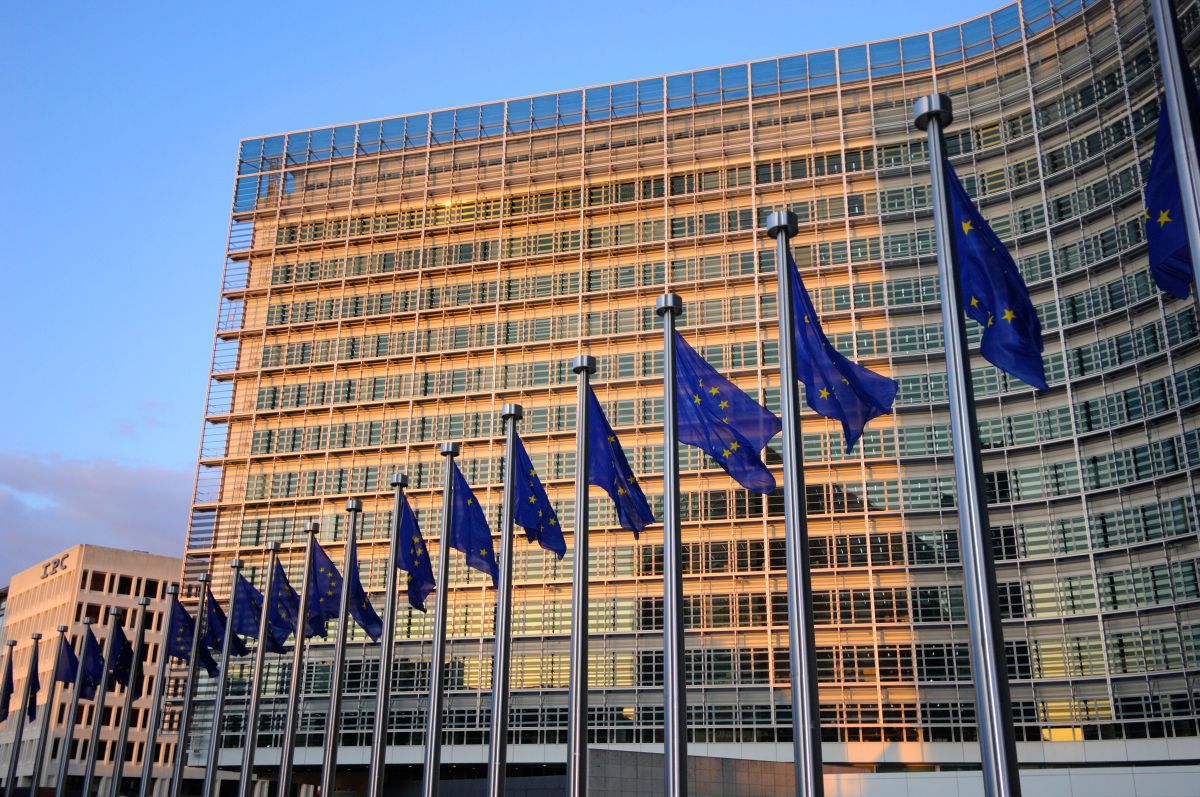Schengen Area: New Measures in Response to the Instrumentalisation of Migration
The European Commission’s (EC) proposed reform of the Schengen area is to be the EU’s response not only to the challenges of the COVID-19 pandemic but also to recent attempts to destabilise the Union through forced migration. The envisaged regulations are to enable the Member States directly affected by the instrumentalisation of migration, including Poland, to react more flexibly to emerging crises. Some of the Commission’s proposals may, however, renew the disputes over overall EU migration policy.
 Fot. Michal Kosc/ FORUM
Fot. Michal Kosc/ FORUM
The Context of the New Regulations
In June 2021, the EC presented its strategy for the reconstruction of the Schengen area after several years of crises, announcing, among others, a draft amendment to the regulation on the rules of movement of people in the Schengen area (Schengen Borders Code, or SBC). The main premise of the reform is addressing the challenges related to the introduction by Member States of restrictions on the internal borders of the zone in connection with the COVID-19 pandemic.
In the meantime, the Schengen problems have been exacerbated by threats on the zone’s eastern border between Belarus and three Member States, Lithuania, Latvia and Poland. Beginning in May last year, migrants’ attempts to cross the EU/Schengen border, initiated and supported by the regime of Alexander Lukashenka (with Russia’s consent) intensified over the following months, prompting EU institutions to react. In October last year, in an open letter to the EC and the Slovenian EU presidency, the ministers of the interior of 12 EU countries—Austria, Bulgaria, Cyprus, Czechia, Denmark, Estonia, Greece, Hungary, Latvia, Lithuania, Poland, and Slovakia—called for an adjustment of the Schengen legal framework to meet the challenges related to the instrumentalisation of migration and hybrid threats. The ministers’ demands included the development of common standards for border protection and the financing of the construction of physical barriers at the EU’s external borders from the common budget. During the October European Council summit, EU leaders condemned attempts by third countries to instrumentalise migrants for political purposes, asking the EC to present changes to EU law and specific measures, including financial, to ensure an immediate and appropriate response. They were to complement EU diplomatic efforts in response to the hybrid attack by Belarus.
At the beginning of December, the Commission published a proposal on temporary emergency measures (Art. 78 (3) of the Treaty on the Functioning of the EU) for Latvia, Lithuania, and Poland, as they were affected by the migration border crisis. The application includes the possibility to restrict the right to submit asylum applications by designating the places where they will be received; extension of the deadline for registering applications; the possibility of an accelerated border procedure for all applications; limitation of material benefits for migrants; and the possibility to seek support from EU agencies as a matter of priority. These measures were to allow for a more flexible response to the emerging migration challenges and could be applied for a period of six months from the adoption of a draft measure by the Council of the EU.
Assumptions of Schengen Reform. The Schengen reform package published by the EC on 14 December includes a proposal for a regulation on counteracting instrumentalisation in the areas of migration and asylum, and a proposal for an amendment to the SBC.
The first document largely reflects the catalogue of measures offered to Latvia, Lithuania, and Poland within the framework of the proposal for a Council decision on temporary emergency measures in early December last year. The regulation would enable the application of similar solutions by any Member State potentially affected by the instrumentalisation of migration. The proposal contains derogations from the Asylum Procedure Regulation, the Reception Conditions Directive, and the Return Directive that may be applied in the face of instrumentalisation of migration. They are intended to enable a Member State confronted with such a challenge to extend the asylum application registration period to four weeks, to process all asylum applications at the border, to extend the duration of asylum and return procedures, and to reduce the material reception conditions for migrants. Despite such derogations, the country affected by the instrumentalisation of migration is still obliged to guarantee migrants effective access to the asylum procedure, meet their basic needs, and allow access to the border by humanitarian organisations providing aid to migrants. Similar to the proposal on temporary measures for Latvia, Lithuania, and Poland, the draft ordinance addressing instrumentalisation also provides priority support for the affected countries from EU agencies (especially Frontex, the European Asylum Agency, and Europol). According to the proposal, to use these instruments, a Member State must refer the matter to the Commission.
The second document, which launches a review of the Schengen Borders Code, introduces a definition of the instrumentalisation of migrants. According to this definition, such a situation occurs when a third country initiates irregular migration flows to the Union by actively encouraging or facilitating the movement of third-country nationals to the Member States and intends to destabilise the Union or a Member State. Given the experiences of the 2015-16 refugee and migration-management crisis and the COVID-19 pandemic, the SBC reform promotes the use of alternative protective measures within the Schengen area against the reintroduction of controls between Member States (e.g., police checks). At the same time, however, it once again extends the scope of their possible application. The revision of the SBC provides for a new protective mechanism in which the Council may decide to introduce in some or all Member States internal border controls if there is a threat to the overall functioning of the Schengen area. Until now, this was only possible when serious shortcomings in the protection of the external borders were identified by one of the Member States (current Art. 29 of the SBC). This procedure was only used once, in 2016 for Greece.
Conclusions and Recommendations
Although, in principle, the legislative proposals proposed by the European Commission are intended to prepare the EU for potential threats, in practice they may contribute to the renewal of disputes between Member States and EU institutions on the preferred direction of migration policy development and deepen the crisis of confidence in the EU. Work on ad hoc measures on asylum issues offered by the Commission to Latvia, Lithuania, and Poland has revealed a substitute for these problems. On the one hand, the countries affected by the crisis expect further derogations from EU law, making it possible to suspend the admission of asylum applications in the event of instrumentalisation of migration by, for example, Belarus. On the other hand, the European Parliament (EP), supported by human rights organisations, criticises the proposal to loosen asylum law, considering that it violates the rights of migrants. The position of the EP is unlikely to stop the project on instituting the measures for Latvia, Lithuania, and Poland (the procedure under Art. 78 (3) TFEU gives the EP only a consultative role), but the body may block the regulation on counteracting instrumentalisation in the areas of migration and asylum (in the case when the EP is a co-legislator with the Council of the EU).
The new Schengen-area protection mechanism proposed in the review of the border code will also raise controversy. The extension of the scope of cases in which it is possible to adopt a pan-European decision on the reintroduction of control at internal Schengen borders may limit the unilateral implementation of controls by individual states, but it also will increase the pressure on adopting such decisions in the EU Council. Taking into account the requirement for qualified majority voting in the Council, this will increase tensions between large and small states. The more so as the smaller Schengen states are often directly exposed to migration crises, including those stimulated by third countries. Expanding the possibility of restoring control within the Schengen area without developing effective solidarity mechanisms with frontline states, including Poland, in crises scenarios may undermine the foundations of EU migration policy. To avoid this, it is necessary to link the discussion on the reform of the Schengen Code with the debate on the shape of the overall EU asylum system. This requires unfreezing work on the migration and asylum package.





